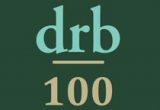
Dublin Review of Books
The Dublin Review of Books is a free online journal of ideas, appearing quarterly. It publishes chiefly review-essays (“long-form” essays, generally from 3,000 to 6,000 words), which in most but not all cases are tied to recently published books, usually but not always in English. Its particular interests and strengths lie chiefly in literature and history, but it also publishes in the fields of politics, economics, sociology, music, visual arts and science. Many, perhaps most, of the review’s contributors are university teachers, but it sees itself not so much as an academic review as a bridge between the academy and a wider readership of intelligent citizens. In general, between a third and a half of its content is related to Ireland and Irish questions. Otherwise, the review takes a very strong interest in Europe, its literary and cultural heritage, its turbulent twentieth century history, and the future of its institutions and forms of government.
Website: www.drb.ie
Email: info@drb.ie
Facebook: www.facebook.com/DublinReviewBooks
Twitter: https://twitter.com/dubreviewbooks

Associate's Articles
‘Soundings’ gets down to the nitty gritty of opposition; ‘Czas Kultury’ says LGBT+ in Poland has lost its way; ‘Dublin Review of Books’ reflects on Trumpian neediness and British moralism; ‘dérive’ examines informality in Vienna, Belgrade and Paris; ‘Atlas’ considers religious atheists, social outcasts and a cause without rebels; and ‘New Literary Observer’ closes in on Franco Moretti’s distant reading.
The ‘Irish slaves meme’– assertions that Irish immigrants to the US were once slaves – has been mobilized by the alt-right to promote a white nationalist agenda based on claims of victimhood. Yet its popularity cannot simply be blamed on the online propaganda of white supremacist groups, argues Bryan Fanning.
Understanding Brexit means understanding the history of English exceptionalism, writes Maurice Earls, editor of ‘Dublin Review of Books’. Anti-Catholicism, maritime expansionism, wartime heroism: the myth of splendid isolation is the common thread. With a hard Brexit looming, however, England may yet come around to the benefits of team-play.
The break-down in the latest round of talks between Greek and Turkish Cyprus has frustrated hopes about an imminent end to the decades-old conflict. However, comparison with the Irish peace process suggests that a solution could still be a generation away.
‘Blätter für deutsche und internationale Politik’ takes a leaf out of Kohl’s book; ‘Vagant’ reruns the Scandinavian experiment; ‘Dublin Review of Books’ suggests an Irish precedent for the Cyprus question; ‘Index on Censorship’ asks what 1917 means for freedom today; ‘Razpotja’ measures rhetoric against reality; ‘Merkur’ challenges middle-class aversion to party politics; ‘Ny Tid’ designs the best-ever utopia; ‘La Revue nouvelle’ understands algorithmocracy; ‘Dialogi’ looks at interculturalism in Slovene theatre; and ‘Ord&Bild’ suspects that Neanderthals were more easy-going.
Whatever happened to the lively and apparently healthy democratic process in Central Europe, during the decade that followed the fall of the Berlin Wall? Answers are more likely to be found in economic circumstances, argues Enda O’Doherty, than supposedly innate tendencies to reaction.
The romantic Englishman
On the political writings of George Orwell
George Orwell is often credited with elevating political writing to an art. However, writes Enda O’Doherty, it might be useful to separate out the terms “political” and “writing”. For while his writing is undoubtedly of the highest order, the quality of his political judgment remains questionable.
Go out to your local bookshop, advises Enda O’Doherty, and get in close with those Books You Haven’t Read, the Books To Read Next Summer and The Books To Fill Out Those Small Gaps That Are Still There On Your Shelves. Don’t come away empty-handed. They may not be there forever.
The modernist moment
Urban politics in Brazil
Brazil may have been a favourite to win the 2014 FIFA World Cup. But the tournament failed to be the host country’s promised game-changer, writes Tom Hennigan. As triumphs of the tropical modernist movement continue to be swamped by new development, the dismal quality of urban life remains a sore point.
Like Joyce’s Ulysses, Nabokov’s Lolita was once smuggled through customs in suitcases. Tim Groenland tells the unlikely story of how Nabokov’s classic ever came to be published in the first place and then go on to become a commercial success.
The deep historical roots of European culture may not lie in the geographical and political entity of today’s Europe. But it is precisely here that the feeling of belonging inspired by the best that has been thought and said (and sung and painted and danced) needs cultivating, argues Enda O’Doherty.
With German-bashing now firmly established as a European Volkssport, Dublin Review of Books editor Enda O’Doherty turns to the semi-barbarous German language; only to find that in the right hands, or expressed through the right vocal cords, German is indeed a very beautiful language.
The Leveson Enquiry into the UK hacking scandal is drawing to a close, yet the future of a new press regulatory body remains controversial. Enda O’Doherty asks what the enquiry’s findings mean for a definition of journalistic standards and the proper relation between politics and media.
Conventional wisdom has it that violence is at least as prevalent today as it has ever been. Yet a vast body of evidence about the past shows incontrovertibly that the chances of an inhabitant of this planet dying violently have never been lower, writes Dan O’Brien, reviewing two new books on the history of violence.
Get smart
Ireland and the euro crisis
Ireland, like other small EU member-states, must be especially smart in responding to the euro crisis, since it does not command the resources that better enable larger states to protect their interests. How coherent has the Irish approach been so far and are the alternatives more convincing?